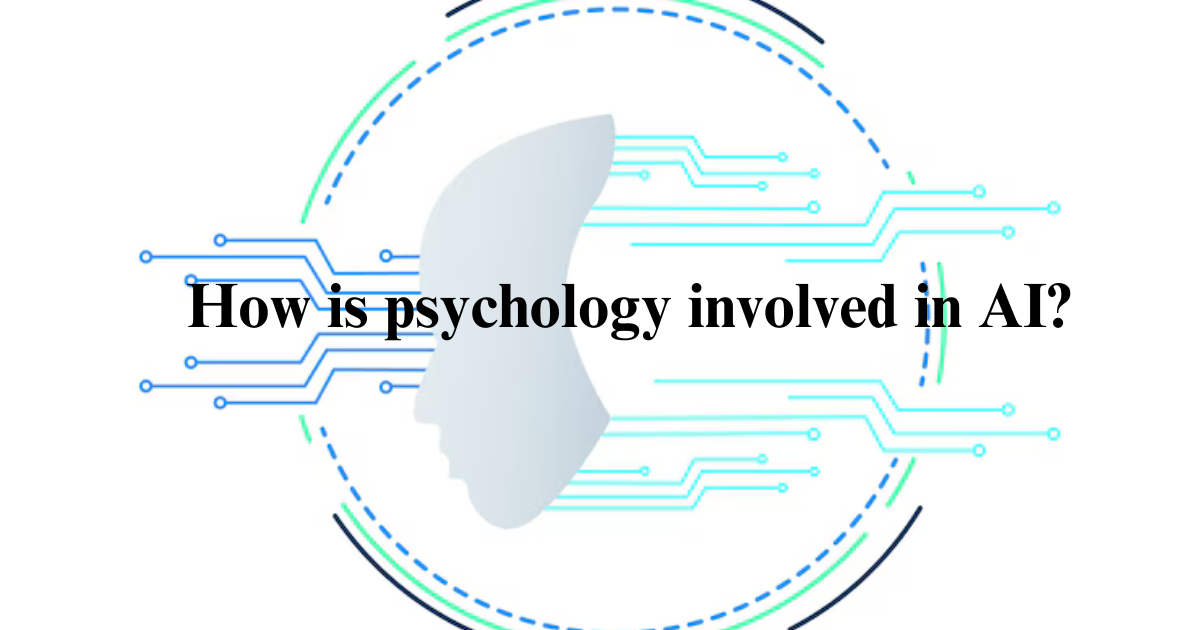Bridging Minds and Machines
Artificial intelligence (AI) has profoundly changed our world, touching various fields, including psychology.
The relationship between psychology and artificial intelligence is not just a merging of two disciplines but a symbiotic partnership that enhances both.
Understanding how psychology is involved in AI helps us grasp the full potential of this integration.
The Intersection of Minds and Machines
AI, with its ability to mimic human intelligence, opens new avenues in psychology. From cognitive models to behavior analysis, AI’s applications are vast.
Understanding artificial intelligence in psychology helps us develop smarter, more intuitive systems. This intersection offers exciting opportunities for innovation.
Cognitive Psychology in AI
Cognitive psychology, which studies how people think, learn, and remember, plays a vital role in AI development.
AI systems designed with cognitive principles can simulate human learning processes, leading to more effective algorithms.
Examples of artificial intelligence in psychology include machine learning models that replicate human problem-solving.
Behavioral Psychology’s Role
Behavioral psychology focuses on observable behaviors, and AI uses these principles to predict and influence user actions.
Reinforcement learning, a core AI technique, stems from behavioral psychology. It helps AI systems learn optimal behaviors through rewards and punishments.
This relationship between psychology and artificial intelligence is crucial for creating adaptive, responsive AI.
Social Psychology and AI Interactions
Social psychology examines how people influence each other. AI systems leveraging these insights can improve social interactions.
For instance, AI in mental health apps uses social psychology to provide better support. Understanding group dynamics helps in developing AI systems that can facilitate better teamwork and collaboration.
Developmental Psychology’s Impact
Developmental psychology studies the changes in behavior throughout life. AI systems designed with these principles can cater to different age groups more effectively.
AI in education, for example, tailors learning experiences based on developmental stages, enhancing learning outcomes.
Practical Applications of Psychology in AI
Human-Computer Interaction (HCI) is a field where psychology significantly impacts AI. Designing user interfaces that consider psychological principles can improve usability and satisfaction.
AI systems that understand and respond to emotions make interactions more natural and engaging. Emotional AI, for instance, can detect user emotions and adjust responses accordingly.
Natural Language Processing (NLP)
NLP, a significant AI area, benefits greatly from psychological insights. Understanding human language’s nuances, emotions, and intentions is key.
AI chatbots and virtual assistants use these insights to provide more accurate and empathetic responses. This makes AI systems more effective communicators.
Personalized AI Systems
AI systems that personalize experiences based on psychological principles offer immense benefits. From customized learning platforms to personalized mental health support, these systems enhance user engagement.
AI for psychology students, for instance, provides tailored learning experiences, improving educational outcomes.
Ethical AI Development
Ethics is a critical consideration in AI development. Psychological principles guide the creation of fair, unbiased, and transparent AI systems.
Addressing issues like bias, privacy, and transparency is essential. AI systems must be designed with ethical considerations to ensure they benefit society.
Case Studies and Examples
Cognitive Behavioral Therapy (CBT) Chatbots
CBT chatbots use psychological principles to provide mental health support. These AI systems offer cognitive behavioral therapy, helping users manage their mental health.
The success of these systems highlights the importance of integrating psychology into AI.
AI in Educational Tools
Adaptive learning platforms use psychological insights to tailor educational experiences. These AI systems adjust content based on the learner’s progress, making education more effective.
This practical application demonstrates the benefits of psychology in AI.
Emotionally Intelligent AI
Emotionally intelligent AI systems use psychological insights to understand and respond to user emotions. These systems enhance user interactions by making them more natural and empathetic. This application showcases the power of psychology in AI.
Case Studies and Examples
Challenges and Ethical Considerations
- Ethical Dilemmas
AI systems must be designed with ethical considerations. Issues like privacy, bias, and transparency are critical. Addressing these challenges ensures AI systems are fair and beneficial.
- Psychological Impact on Users
AI’s impact on mental health is a growing concern. The negative impact of AI on mental health, such as dependency and social isolation, must be addressed. Designing AI systems that consider these effects is essential.
- Addressing Challenges
Strategies for ethical AI development include creating regulatory frameworks and ongoing research. Collaboration between psychologists and AI developers is crucial for addressing these challenges.
Future Directions
Emerging Trends
Neuropsychology and AI integration is an emerging trend. Understanding brain functions can lead to more advanced AI systems. Cross-disciplinary research will continue to drive innovation.
The Role of Psychologists
Psychologists play a crucial role in AI development. Their insights guide the creation of effective, ethical AI systems. Training and education in AI for psychology students are essential for future advancements.
Future Directions
Conclusion
The integration of psychology and AI offers immense potential. Understanding how psychology is involved in AI helps create smarter, more ethical systems.
The relationship between psychology and artificial intelligence is a promising partnership, driving innovation and improving lives.
that’s al for today, For More: https://learnaiguide.com/free-artificial-intelligence-courses-in-2024/
